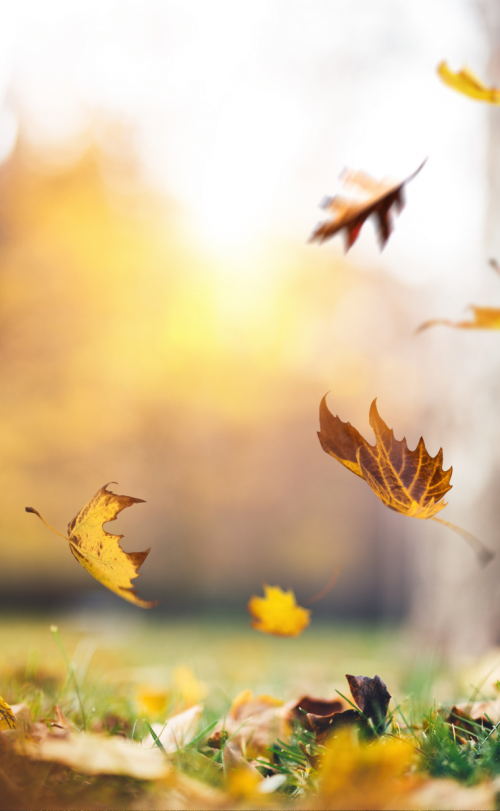
In 2017, I was in Portland when I experienced fall for the first time. I remember sitting by the window of a cafe, looking at a tree perched on what seemed like a sea of golden leaves. With every breeze the leaves would break into a dance, joined by more from the tree.
It is a small but significant memory that has since shaped much of how I see the world. It was the beginning of a life-long love for trees and nature. Trees embody a beauty that is pure and true. They sustain all of life. If there is a God, I believe it lives among the trees.
“Beauty is truth, truth beauty, – that is all” – John Keats, Ode on a Grecian Urn.
It was also in Portland that I received news that my residency application to Canada was approved. I think it remains, to this day, the happiest news I have received.
I found myself in Toronto soon thereafter, and experienced my first snowfall. It was magical, like the fall, but in a different colour. To be an adult and find oneself looking at the world with the amazement of a child – I wish we all experienced that more often.
Letting go
While I lived in Toronto I would visit India every year to see my family, and each year it felt like a less comfortable place to be. Every visit made me realise how grateful I was to have the life I had in Toronto. Each year I drifted away further and further from the life I had in India. My parents could feel the change and were heartbroken but I couldn’t explain what I was going through. I felt that I had to let go of my previous life to make space for the new one.
I was content to the brim. I had to be. I liked Toronto and was starting to set roots. I had all the nice things in life: shelter, quiet, stability, friends, health … but I felt isolated. Growing up in India I would not have believed that one could have all the material comforts in life and still feel unhappy. Or maybe this wasn’t unhappiness at all – but just how all adults feel after a certain age.
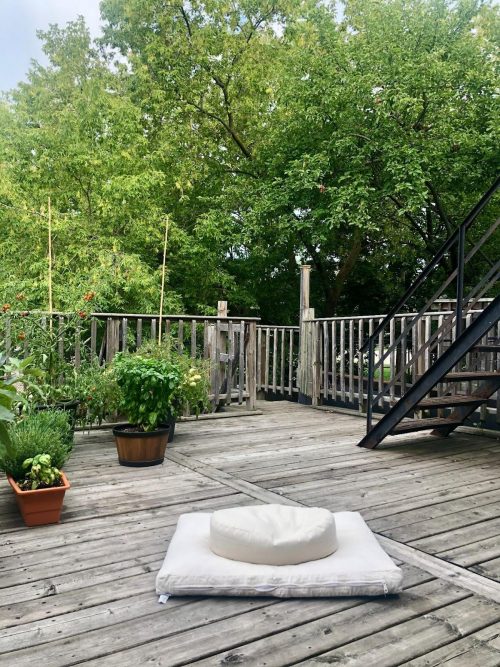
I started doing evening yoga classes at a studio near my house, and slowly came to know the people who frequented there. I felt a sense of belonging that I hadn’t felt since I left India. I did my first yoga teacher training soon thereafter, and it made me realise that there was more to life than mere contentment – there was a bliss, an ananda to be found. Maybe life isn’t just a slow descent into numbness after all. I wanted to stay and nurture the community I was building, but it was cut short by the pandemic.
Like most people, I started to work from home. Not being able to visit my yoga studio felt like a blow, but I found respite in my evening meditation sessions on the patio, facing the beautiful green tree against the backdrop of the setting sun. And one day the tree was gone – taken away in pieces on black trucks. Next day, it became a car park. It felt like a sign. One by one I was losing everything I had nurtured in Toronto over the years.
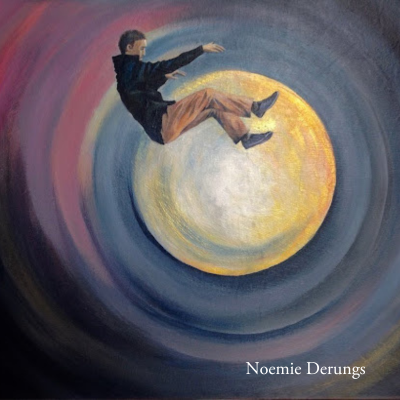
I decided to pack my things and move to BC, wanting to deepen my yoga practice and live away from a big city. Last few years in Toronto I had cultivated a Pothos from a few leaves to a flourishing plant over 8 feet. Giving it away felt like admitting that no place would ever truly be home again. Maybe I had to let go of the idea altogether.
“To put it still more plainly: the desire for security and the feeling of insecurity are the same thing. To hold your breath is to lose your breath. A society based on the quest for security is nothing but a breath-retention contest in which everyone is as taut as a drum and as purple as a beet.” ~ Alan Watts, The Wisdom of Insecurity
Finding Quiet Meaning
I moved to Nelson, BC. A small city surrounded by mountains and an interesting history. Good enough. There I learned about the Ashram and decided to visit, spending a few months as a karma yogi.
While growing up in India, I was surrounded by religion and spirituality. They evoked images of large crowds, strict rules, patriarchal figures and hierarchy. Yogic gurus blaring their dogmas on TV every morning, blurring the lines between religion and nature, peddling superstition. Some gurus became politicians; some became businessmen.
I wanted the sense of meaning that often comes from those beliefs, but without all the noise.
The Ashram was a place of tranquillity and nature in all its glory, but it was also a place of divinity. It felt like the melting point of the three important things I had come to cherish in life – a community, living in nature, and building a life in Canada. For the first time it seemed that these ideas were not at odds with each other.
My time at the Ashram made me realise what I missed most about life in India, and why – despite all my time in Canada, I always felt that something was amiss. India is uncomfortable and difficult, but it is a place where people experience difficulties together. People are close to their family, often living together. Kids grow up with their grandparents. People drop by for an afternoon tea on short notice. Sometimes it was overwhelming, since it left little space for privacy. So when I moved to Canada I had to try the opposite – obstinate individualism, but that didn’t work out any better.
Chanting was a big part of life in India. It was the essence of most religious ceremonies and morning rituals. Certain words repeated a certain way. No questions asked. But when I heard “Hari Om” in Swami Radha’s voice reverberating through the Ashram I felt unprepared. It was surreal. I could cry. I had heard the words so many times before and from so many people, but for the first time I could feel them.
Balancing East & West
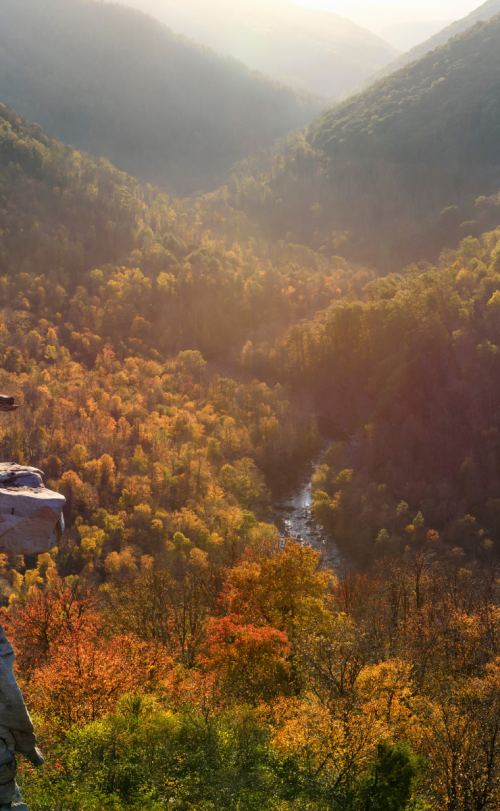
Then it hit me: so much of my pain came from wanting to forget the life I had in India, and willing it out of existence. I had to learn to make peace with it. My unwitting journey, all along, had been to find a balance between the two worlds, and the two lives. The colours of the East with the nuances of the West. The teachings of the East with the liberalism of the West. What had so often felt like a misfortune felt like an opportunity for the first time.
I had these realisations at the Ashram, which doesn’t feel surprising looking back. The Ashram brings many worlds together. Having Buddhist and Christian images along with Hindu deities at a place of worship would be unheard of in India. To be able to learn something from each of the infinitely complex schools of thought – it is a unique privilege.
I became a Canadian citizen in 2022. I attended my oath ceremony over Zoom from the Ashram. It was the culmination of an almost 10-year journey that started with me leaving India when I was 21 in search of a quiet place to build a new home for myself. My journey since was the sum of many unlikely events, life-changing lessons, and unexpected people in unlikely places. Looking ahead it would have seemed improbable, but looking back, it felt like a well-designed divine plan.
I find myself living in Europe now, to be close to those I love. I still visit India every year, and a part of it feels just as uncomfortable, but I also find more acceptance for it each time. I cherish the people in my life, and am learning to let go of the heavy garb of individualism, and it feels like a relief.
Now that I don’t live in Canada I often find myself reminiscing about my time there. The vibrant fall of Ontario. The wise trees on Vancouver Island. Hari Om on the Kootenay Lake. The place I first learned to love trees. The place I first saw snow. The 20s of my life. Home, as one would say.
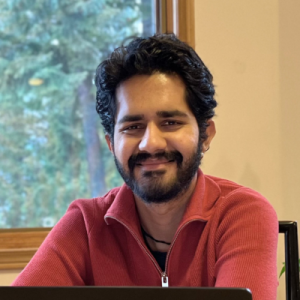
Nishant Agrawal founded a tech startup in college that he runs today. In 2012 he left India and spent the next 10 years living a nomadic life spanning over a dozen countries. In 2022 he received the honour to call Canada his new home. He now divides his time between Germany, India and Canada. You can also reach him at https://callmenish.com/
art acknowledgement: Noemie Derungs
